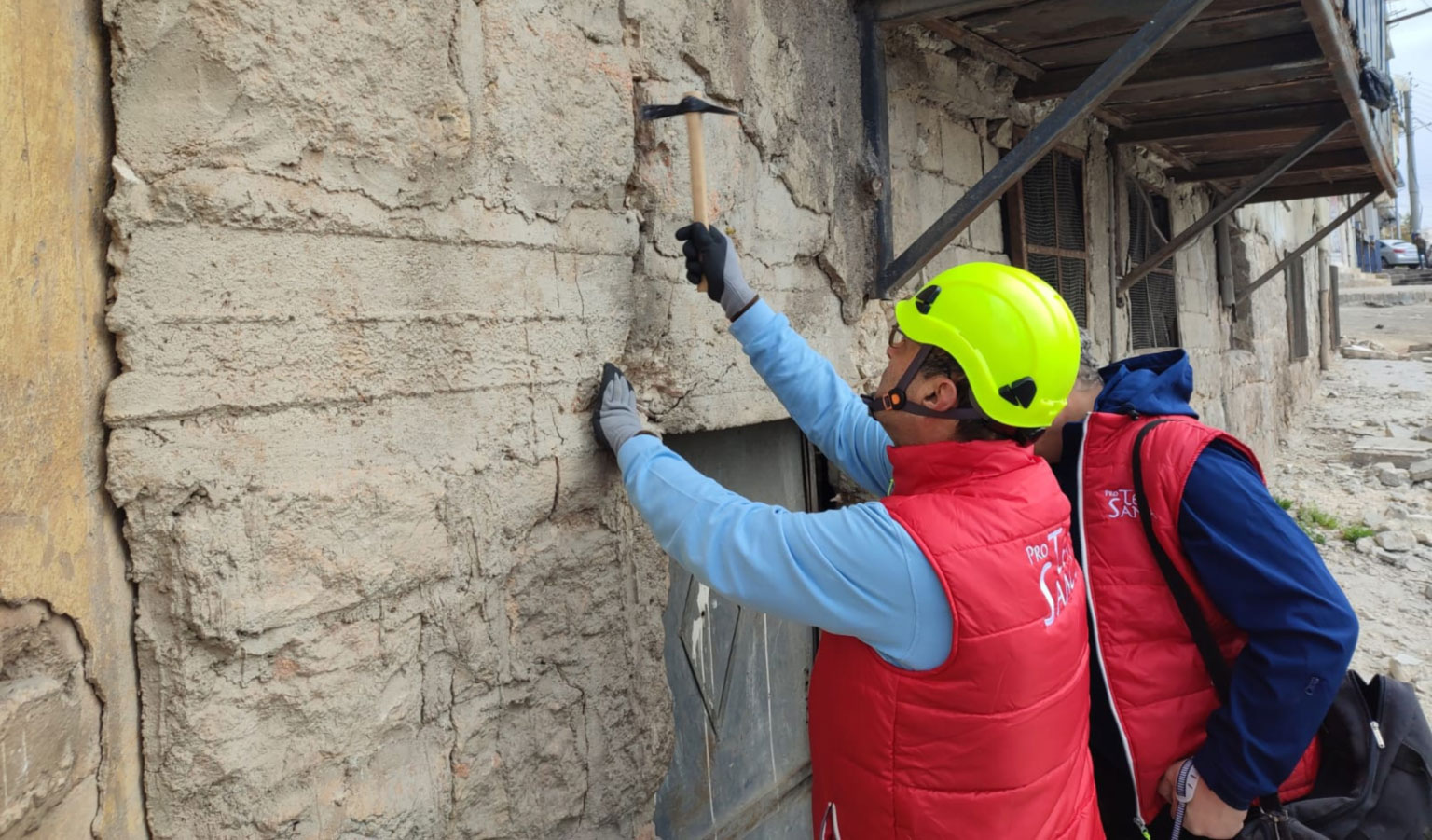Diego puts the spirit level to the floor. He checks it deeply. Then, sorrowful, “There’s nothing to do, the floor clearly slopes to the left. The ground has given way. And this building has to be demolished.” It is a story often repeated in the reconnaissance of engineers reviewing houses in Aleppo. Bruno hits the walls of another building with a hammer to figure out what to do. “See these cracks? They are too deep: it could collapse at any moment.”
Giorgio shakes his head as he sees a crumbling balcony on a frequently passing street. “There isn’t even a bollard to restrict people’s traffic. And it could fall any minute.”
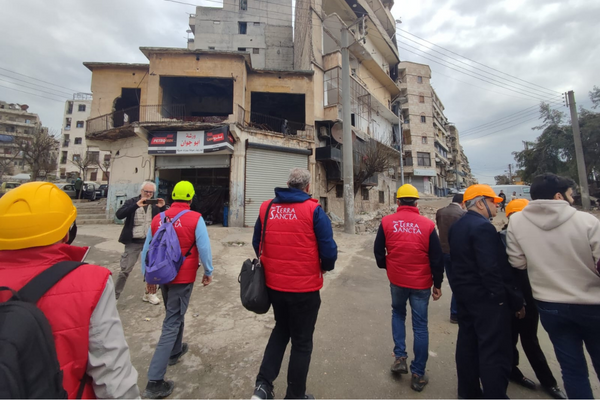
The second phase with Pro Terra Sancta
A month has passed since the earthquake, and phase “two,” the one devoted to reconstruction, is beginning. The team is at work, accompanied by some local engineers and members of the “Syrian Trust for Development”, the association that is working to repair the damage caused by the earthquake. They are there too, four specialists who came from Italy with great enthusiasm to help. Libero, Giorgio, Bruno and Diego: this is the first mission that Pro Terra Sancta has organized to start the second phase.
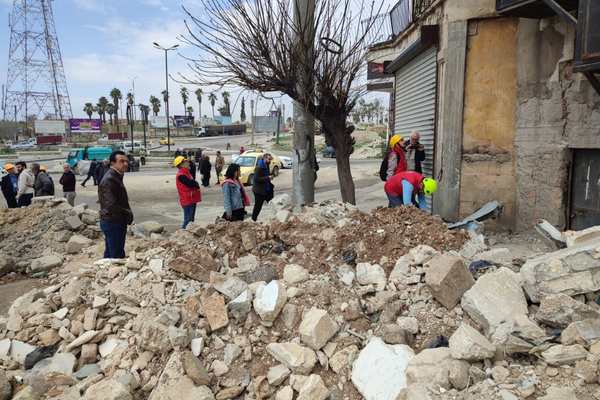
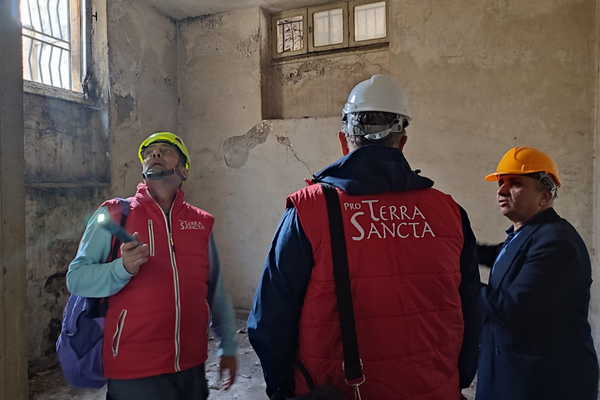
It is often not easy: in a city like Aleppo, earthquake damage has irreparably damaged buildings constructed with culpable neglect. The rubble is still there where the earthquake threw it. There are no bulldozers that can operate and remove it, and nobody knows how many victims have yet to be extracted. Hundreds, thousands. Especially in eastern Aleppo. Our experts are talking to local engineers, offering opinions, measuring damage.
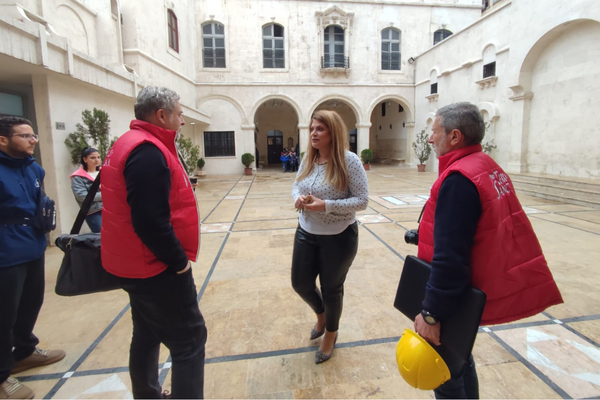
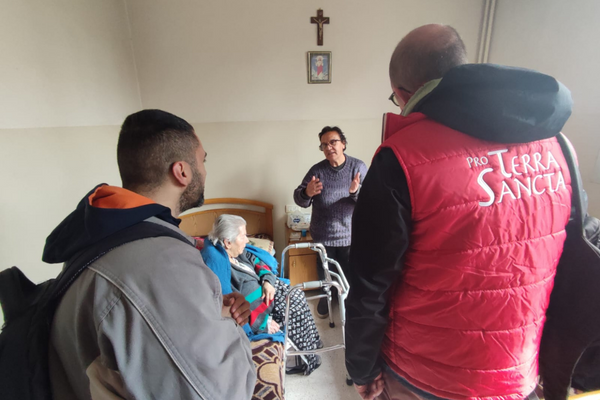
The words of Fr. Bahjat
This mission is the result of a beautiful collaboration with the Syrian government and among local churches. “Something never seen before” – says Franciscan friar Father Bahjat – “as many as thirteen Christian churches coming together as never before to immediately help the population”. An ecumenism of blood, they call it. That unity that even during the war they had not been able to have. And now they are together, coordinating aid and beginning to rebuild. The houses, of course. But also the churches and houses of worship, so precious in Syria’s martyred city. “People need homes, but they also need places to pray. We saw this during the war,” continued Fr. Bahjat, “how people found themselves lost without a place to call them back to hope”.
Days pass between one visit and the other. “Here the water has created an infiltration,” he says. “We need to evacuate this building immediately.” And again, “Be careful putting bricks on the stairs: in these conditions they could collapse.” Caring to all details. Every detail is not underestimated. Sometimes something can still be done to save the building, other times it must be demolished. We hope it can be done.
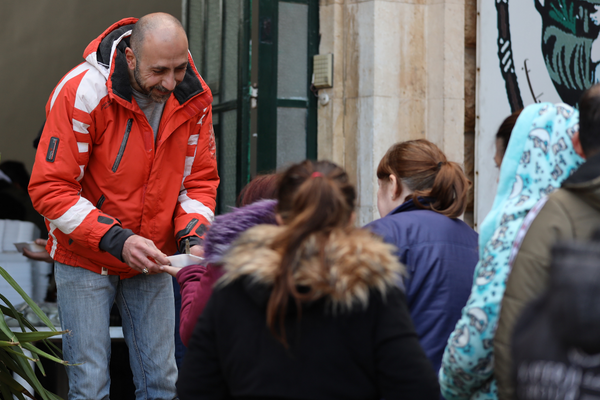
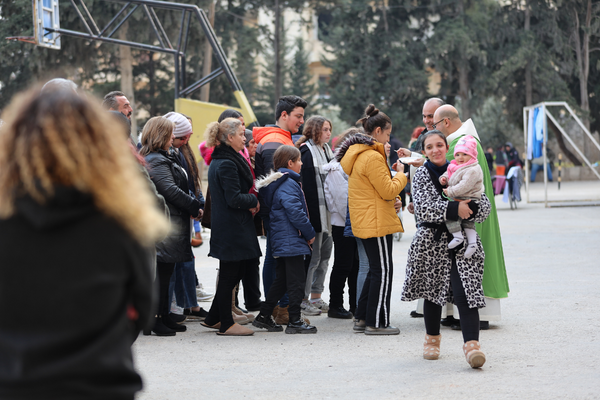
Our days between enthusiasm and discouragement
Enthusiasm and discouragement embrace in these intense days, where there is not a moment to lose. Also Basil, a young engineer from Aleppo also joins the group. Very little experience, but a lot of desire to help. And to learn. “When I heard about this mission, I immediately tried to join the group. I want to help rebuild my country.” It does not go without saying. Most young people want to leave, and they are no longer hiding.
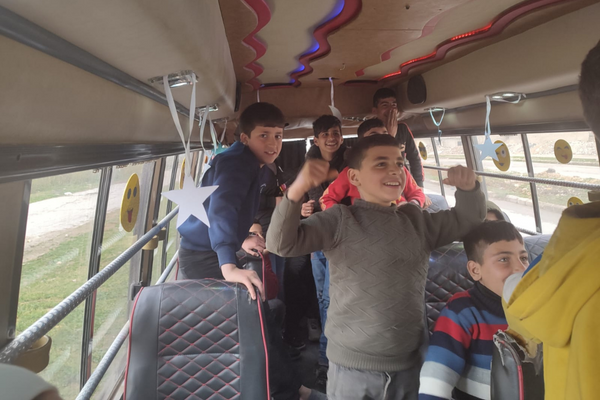
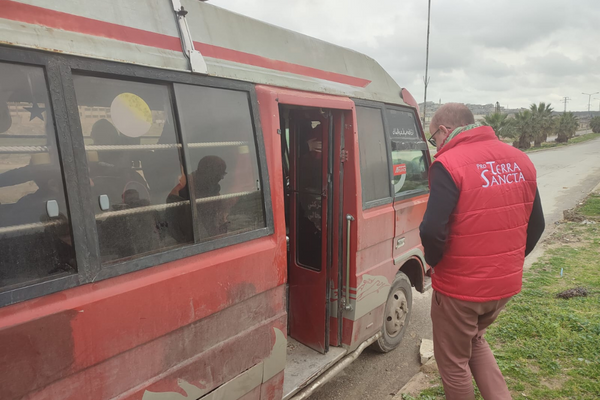
Syria is experiencing an unprecedented economic crisis, with the lira devaluing with each passing day. There are very few prospects, yet there are still those who hope for a better future. Basil adds: “But hope is not enough. You have to try to build your future. I have been lucky in life. I have been able to study, attend a good University, and have a good chance to do a good job. I want to give back some of what I have been given. With my friends, for the people who still live here. And with God’s help, I’m sure we will succeed.”
By Andrea Avveduto | proterrasancta.org

